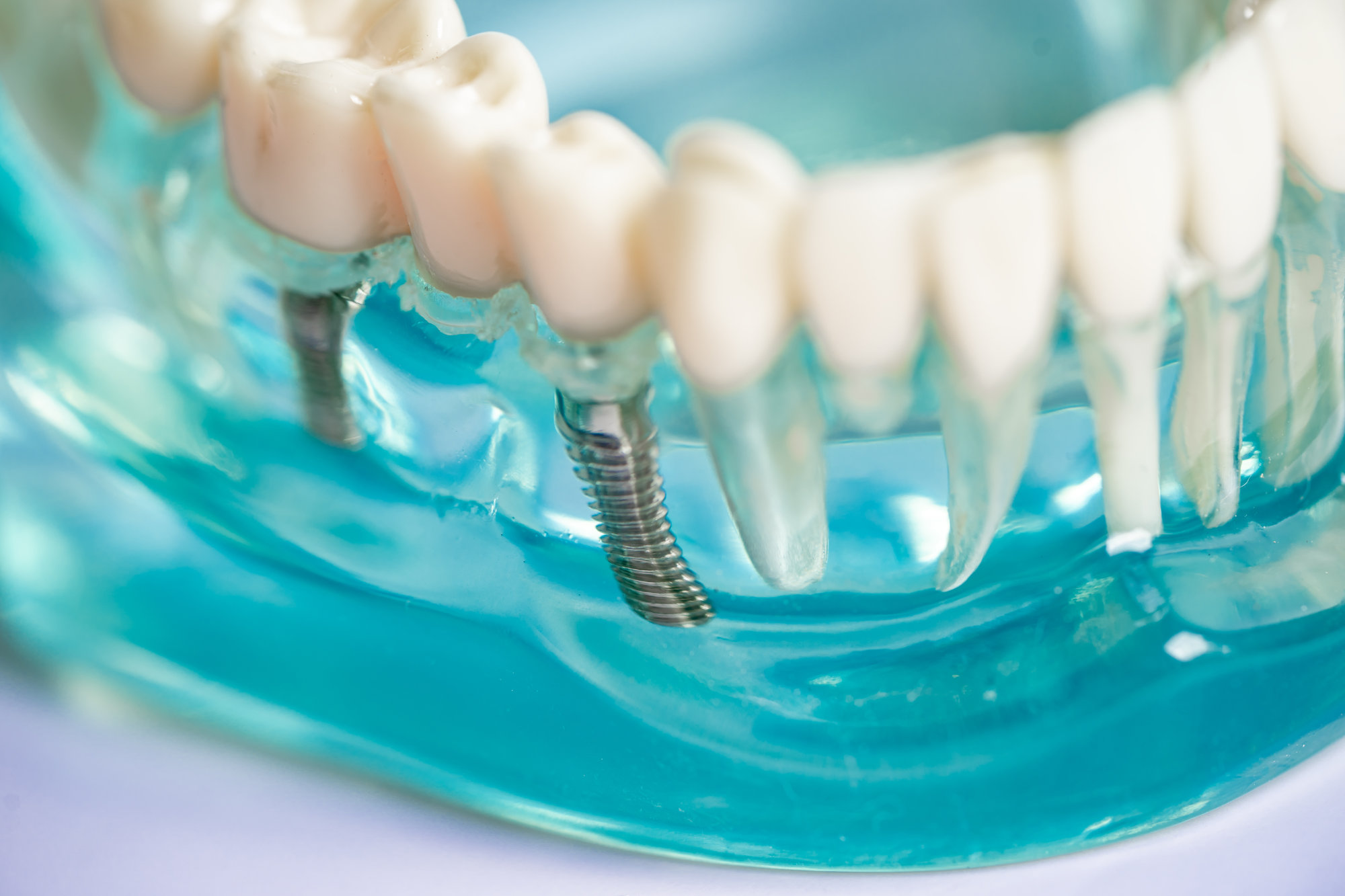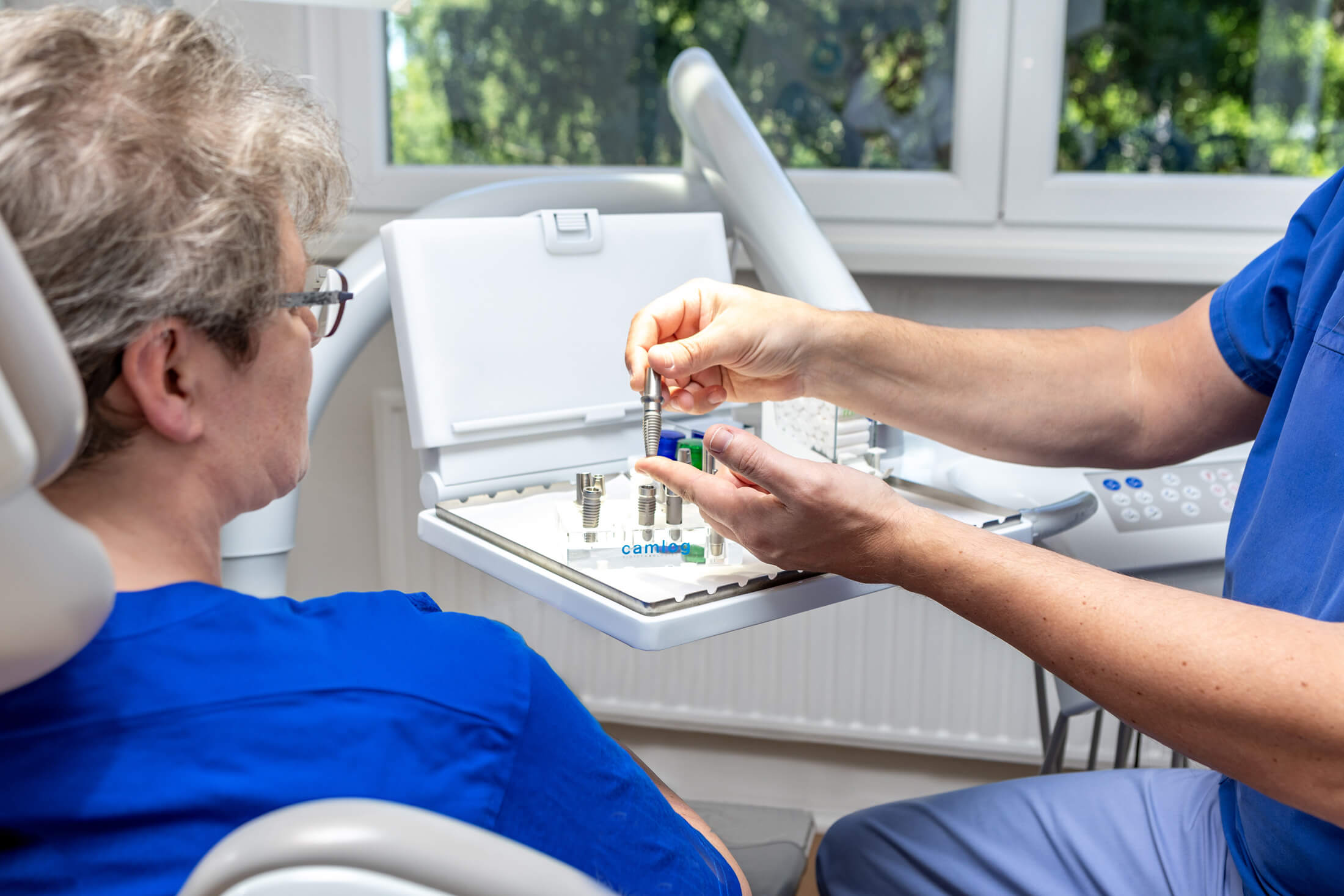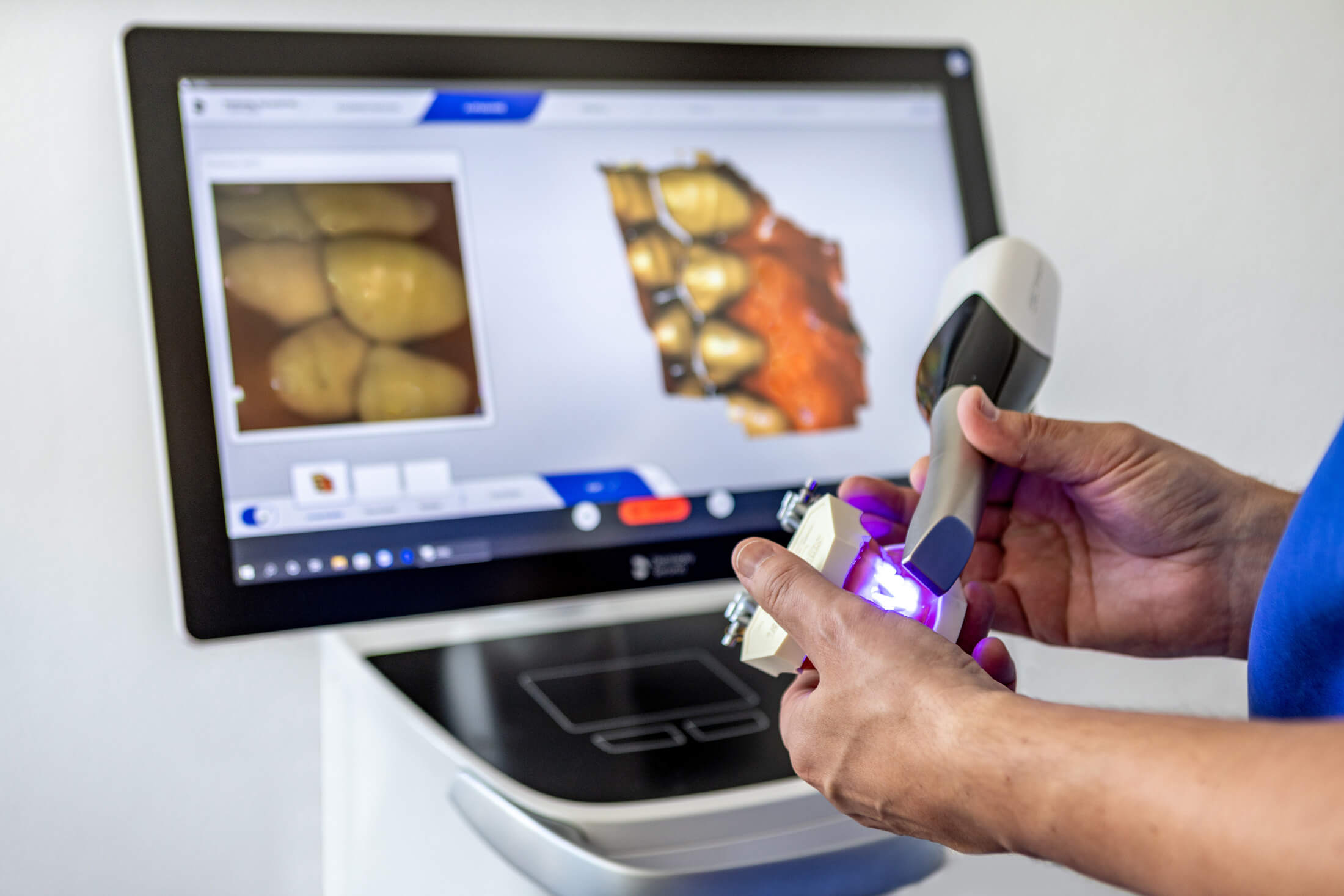

Ein strahlendes Lächeln verbessert nicht nur unser äußeres Erscheinungsbild, sondern stärkt auch unser Selbstvertrauen und unser soziales Wohlbefinden. Doch was passiert, wenn Zähne verloren gehen? Hier kommen Zahnimplantate ins Spiel – eine dauerhafte Lösung für verlorene Zähne, die sowohl in funktioneller als auch in ästhetischer Hinsicht revolutionär ist.
Zahnimplantate sind künstliche Zahnwurzeln, meist aus Titan, die chirurgisch in den Kieferknochen eingesetzt werden, um einen oder mehrere Zähne zu ersetzen. Sie bieten eine moderne und hochwertige Alternative zu herkömmlichen Brücken und Prothesen. Doch wann genau kommt ein Zahnimplantat zum Einsatz? Grundsätzlich dann, wenn natürliche Zähne verloren gegangen sind – sei es durch Unfälle, Krankheiten wie Parodontitis oder durch andere zahnmedizinische Probleme.
Der Einsatz von Zahnimplantaten kommt ins Spiel, wenn Patienten nach dauerhaften und ästhetisch ansprechenden Lösungen für verloren gegangene Zähne suchen. Sie sind besonders vorteilhaft, wenn es darum geht, die Funktion und das Aussehen des natürlichen Gebisses zu erhalten oder wiederherzustellen.
Die Vorteile von Zahnimplantaten sind vielfältig und beeindruckend. Unmittelbar nach ihrer Einführung bieten sie eine starke und stabile Basis für künstliche Zähne, die sich nahtlos in das natürliche Lächeln einfügen. Dies stellt nicht nur die Funktionalität des Gebisses wieder her, sondern gibt den Patienten auch ihr natürliches Lächeln zurück.
Ein bedeutender Vorteil von Zahnimplantaten ist ihr Komfort. Im Gegensatz zu herausnehmbaren Prothesen, die oft als fremd empfunden werden, sind Implantate fest verankert und bieten ein Gefühl, das dem natürlicher Zähne sehr nahe kommt. Dieser Aspekt ist besonders wichtig für das alltägliche Wohlbefinden der Patienten, da sie sich nicht mehr um wackelnde oder unpassende Prothesen sorgen müssen.
Langfristig gesehen, bieten Zahnimplantate eine außerordentlich dauerhafte Lösung. Mit der richtigen Pflege können sie ein Leben lang halten. Sie tragen dazu bei, den Kieferknochen zu erhalten, indem sie die Knochenresorption verhindern, die typischerweise auftritt, wenn Zähne fehlen. Dieser Prozess, bekannt als Knochenatrophie, kann dazu führen, dass das Gesicht älter aussieht, als es tatsächlich ist. Implantate stimulieren den Knochen, ähnlich wie natürliche Zahnwurzeln, was dazu beiträgt, die Struktur des Gesichts zu bewahren.

Implantate sind eine dauerhafte Lösung für Zahnverlust. Mit angemessener Pflege können sie ein Leben lang halten, ohne dass sie ersetzt werden müssen. Dies macht sie zu einer kosteneffizienten Langzeitinvestition im Vergleich zu anderen Zahnersatzoptionen, die möglicherweise regelmäßig ersetzt oder angepasst werden müssen.
Vereinbaren Sie einen Termin 24h online oder telefonisch.
Der Prozess der Implantation beginnt mit einer detaillierten Untersuchung und Planung. Moderne bildgebende Verfahren wie 3D-Scans werden verwendet, um den Zustand des Kieferknochens zu beurteilen und den idealen Standort für das Implantat zu bestimmen. Diese sorgfältige Planung ist entscheidend für den Erfolg der Behandlung. Die eigentliche Implantation ist ein chirurgischer Eingriff direkt bei uns in der Praxis, bei dem das Implantat unter lokaler Anästhesie und der Verwendung von digitalen Implantatschablonen präzise und sicher gesetzt wird.
Dies sorgt für einen komfortablen und schmerzfreien Prozess für den Patienten. Nach der Implantation erfolgt eine Heilungsphase, in der das Implantat mit dem Knochen verwächst – ein Prozess, der als Osseointegration bekannt ist. Diese Phase ist entscheidend, da sie die stabile Basis für den neuen Zahn bildet.
Sobald die Osseointegration abgeschlossen ist, wird der Zahnersatz – ob Krone, Brücke oder Prothese – auf dem Implantat befestigt. Die endgültigen, in unserem hauseigenen Praxislabor gefertigten prothetischen Komponenten werden individuell gestaltet, um Farbe, Form und Größe der natürlichen Zähne des Patienten zu entsprechen, und bieten so ein ästhetisch ansprechendes und funktionales Ergebnis.




Der gesamte Prozess der Implantation kann mehrere Monate dauern, doch das Ergebnis ist eine dauerhafte, sichere und ästhetisch ansprechende Lösung, die die Lebensqualität erheblich verbessert. Patienten genießen nicht nur das Aussehen und Gefühl natürlicher Zähne, sondern auch die Freiheit und Sicherheit, die mit einem vollständig restaurierten Lächeln einhergehen.
Die Investition in Zahnimplantate ist eine Investition in Ihr Wohlbefinden und Ihre Gesundheit. Es ist eine Entscheidung, die das Potenzial hat, nicht nur Ihr Lächeln, sondern Ihr gesamtes Leben zu verändern. Wenn Sie sich für ein volleres, selbstbewussteres Lächeln interessieren, dann zögern Sie nicht länger.
Vereinbaren Sie einen Termin mit uns, um mehr über Zahnimplantate zu erfahren und einen Beratungstermin zu vereinbaren. Ihr neues Lächeln wartet bereits auf Sie – ergreifen Sie die Initiative für eine strahlendere Zukunft.
Das Wohlbefinden und die Lebensqualität von Menschen aller Altersgruppen sind stärker mit ihrem allgemeinen Gesundheitszustand verknüpft als man zunächst vermuten möchte. In diesem Zusammenhang spielen allen voran die gesunden, originalen Zähne oder ein funktionsfähiger und gut sitzender Zahnersatz eine wesentliche Rolle für die Zufriedenheit der Patienten mit ihrer Lebenssituation.

Unsere Zahnärzte sind äußerst patientenorientiert und legen großen Wert auf eine individuelle, sehr persönliche Beratung und Betreuung ihrer Patienten und führen Diagnostik sowie Zahnbehandlungen auf höchstem fachlichen Niveau durch.
+49-30-3045451
Copyright 2025 © All Right Reserved Belvedere Zahnärzte.
Sie müssen den Inhalt von reCAPTCHA laden, um das Formular abzuschicken. Bitte beachten Sie, dass dabei Daten mit Drittanbietern ausgetauscht werden.
Mehr Informationen